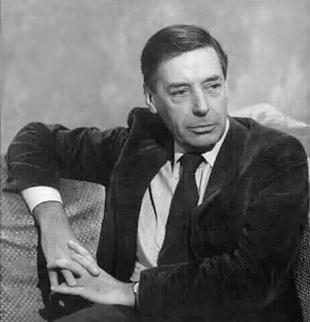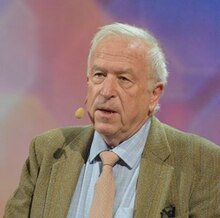In analytic philosophy, anti-realism is a position which encompasses many varieties such as metaphysical, mathematical, semantic, scientific, moral and epistemic. The term was first articulated by British philosopher Michael Dummett in an argument against a form of realism Dummett saw as 'colorless reductionism'.
Moral relativism or ethical relativism is used to describe several philosophical positions concerned with the differences in moral judgments across different peoples and cultures. An advocate of such ideas is often referred to as a relativist for short.
Moral realism is the position that ethical sentences express propositions that refer to objective features of the world, some of which may be true to the extent that they report those features accurately. This makes moral realism a non-nihilist form of ethical cognitivism with an ontological orientation, standing in opposition to all forms of moral anti-realism and moral skepticism, including ethical subjectivism, error theory, and non-cognitivism. Within moral realism, the two main subdivisions are ethical naturalism and ethical non-naturalism.

John Henry McDowell is a South African philosopher, formerly a fellow of University College, Oxford, and now university professor at the University of Pittsburgh. Although he has written on metaphysics, epistemology, ancient philosophy, nature, and meta-ethics, McDowell's most influential work has been in the philosophy of mind and philosophy of language. McDowell was one of three recipients of the 2010 Andrew W. Mellon Foundation's Distinguished Achievement Award, and is a Fellow of both the American Academy of Arts & Sciences and the British Academy.

Sir Bernard Arthur Owen Williams, FBA was an English moral philosopher. His publications include Problems of the Self (1973), Ethics and the Limits of Philosophy (1985), Shame and Necessity (1993), and Truth and Truthfulness (2002). He was knighted in 1999.
Philosophical realism – usually not treated as a position of its own but as a stance towards other subject matters – is the view that a certain kind of thing has mind-independent existence, i.e. that it exists even in the absence of any mind perceiving it or that its existence is not just a mere appearance in the eye of the beholder. This includes a number of positions within epistemology and metaphysics which express that a given thing instead exists independently of knowledge, thought, or understanding. This can apply to items such as the physical world, the past and future, other minds, and the self, though may also apply less directly to things such as universals, mathematical truths, moral truths, and thought itself. However, realism may also include various positions which instead reject metaphysical treatments of reality entirely.
In meta-ethics, expressivism is a theory about the meaning of moral language. According to expressivism, sentences that employ moral terms – for example, "It is wrong to torture an innocent human being" – are not descriptive or fact-stating; moral terms such as "wrong", "good", or "just" do not refer to real, in-the-world properties. The primary function of moral sentences, according to expressivism, is not to assert any matter of fact but rather to express an evaluative attitude toward an object of evaluation. Because the function of moral language is non-descriptive, moral sentences do not have any truth conditions. Hence, expressivists either do not allow that moral sentences to have truth value, or rely on a notion of truth that does not appeal to any descriptive truth conditions being met for moral sentences.
Michael Andrew Smith is an Australian philosopher who teaches at Princeton University. He taught previously at the University of Oxford, Monash University, and was a member of the Philosophy Program at the Research School of Social Sciences, Australian National University. He is the author of a number of important books and articles in moral philosophy. In 2013, he was elected a Fellow of the American Academy of Arts and Sciences.
David Wiggins is an English moral philosopher, metaphysician, and philosophical logician working especially on identity and issues in meta-ethics.
Cornell realism is a view in meta-ethics, associated with the work of Richard Boyd, Nicholas Sturgeon, and David Brink, who earned his Ph.D. at Cornell University. There is no recognized and official statement of Cornell realism, but several theses are associated with the view.
Quasi-realism is the meta-ethical view which claims that:
- Ethical sentences do not express propositions.
- Instead, ethical sentences project emotional attitudes as though they were real properties.
Projectivism or projectionism in philosophy involves attributing (projecting) qualities to an object as if those qualities actually belong to it. It is a theory for how people interact with the world and has been applied in both ethics and general philosophy. It is derived from the Humean idea that all judgements about the world derive from internal experience, and that people therefore project their emotional state onto the world and interpret it through the lens of their own experience. Projectivism can conflict with moral realism, which asserts that moral judgements can be determined from empirical facts, i.e., some things are objectively right or wrong.

Richard Newell Boyd was an American philosopher, who spent most of his career teaching philosophy at Cornell University where he was Susan Linn Sage Professor of Philosophy and Humane Letters Emeritus. He specialized in epistemology, the philosophy of science, language, and mind.
Peter Albert Railton is an American philosopher who is Gregory S. Kavka Distinguished University Professor and John Stephenson Perrin Professor of Philosophy at the University of Michigan, Ann Arbor, where he has taught since 1979.

Russ Shafer-Landau is an American philosopher and Professor of Philosophy at the University of Wisconsin, Madison.

Quietism in philosophy sees the role of philosophy as broadly therapeutic or remedial. Quietist philosophers believe that philosophy has no positive thesis to contribute, but rather that its value is in defusing confusions in the linguistic and conceptual frameworks of other subjects, including non-quietist philosophy. For quietists, advancing knowledge or settling debates is not the job of philosophy, rather philosophy should liberate the mind by diagnosing confusing concepts.
Mark de Bretton Platts is a philosopher at the Instituto de Investigaciones Filosóficas de la Universidad Nacional Autónoma de México. He is well known for criticizing the Humean theory of motivation, especially in his book Ways of Meaning (1979/1997).
Donald Mackenzie MacKinnon (1913–1994) was a Scottish philosopher and theologian.
Matthew Henry Kramer is an American philosopher, and is currently a Professor of Legal and Political Philosophy at the University of Cambridge and a Fellow of Churchill College, Cambridge. He writes mainly in the areas of metaethics, normative ethics, legal philosophy, and political philosophy. He is a leading proponent of legal positivism. He has been Director of the Cambridge Forum for Legal and Political Philosophy since 2000. He has been teaching at Cambridge University and at Churchill College since 1994.
Sharon Street is a professor of Philosophy and Chair of the Department of Philosophy at New York University. She specializes in metaethics, focusing in particular on how to reconcile our understanding of normativity with a scientific conception of the world.






